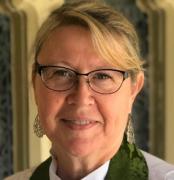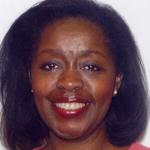The 2021 Diocesan Convention resolution "Charting the Long Road Towards Reparations" calls on the diocese to commit 2022 as a year of study and discernment, to come to a broadly accepted understanding of what form reparative actions might take "in the name of repentance, reconciliation and accountability to the descendants of enslaved Africans and their communities.”
As part of that process, the diocesan Racial Justice Commission's Subcommittee on Reparations, together with the regional canons, will host a series of online listening sessions in May 2022, open to all. (Read more and find the schedule here).
Here, Constance Perry and Carol Morehead of the Racial Justice Commission's Subcommittee on Reparations share, in their own words, what's drawn them to engage in hard, holy work toward reparations.
Carol Morehead, Grace Church, Medford:
"Candidly and selfishly, I was very interested in the work that the diocesan Reparations Subcommittee was doing because this is work that we’re engaged in at the parish level, and I was looking for resources. I wanted to know what the diocese was doing so that we can mirror that and learn from that on our parish level. So that was one of the things that drove me to this.
"And then the broader answer to that, what gives me hope and what I think is really important, is the recognition that to live out really fully our baptismal covenant that calls us to be engaged in the works of justice and mercy--it’s an invitation to us to grow and embody things we talk about and espouse and put into action in other ways but haven’t in this way.
"I’d say that being on this subcommittee and doing this work, for me personally, is very humbling. I’m fairly new to the group, and there is just incredible lived experience and wisdom and willingness to be vulnerable in the very best way that, really, I wish every church group in every place could actually do, and we so seldom do, or we’re so scared to do. It’s just a really beautiful and very intentional group, and so that is the joy and hope. Think globally, act locally: Being in this kind of local, embodied group inspires me more to become like that myself."
Constance Perry, Trinity Church, Boston:
"I’m retired now, but in my working days, I was an operations administrator. My job was to take an idea, a vision, and make it happen--the nuts and bolts--and so when I was invited to be a part of this work, I thought it would be a useful way for me to use my skills and to bring some of my own personal life experiences.
"Along the way, though, over the past year, I have come to realize that this is very personal for me. I am a descendant of people who were enslaved, and fairly recently, had confirmed I’m also the descendant of people from European descent. So I carry that in me. And I carry the history, the experiences, in me of people who are my African and African American ancestors and people who I am connected to by ethnicity and tradition and race. Awhile ago at an antiracism event, during a break, I heard the voices of my ancestors in my head welcoming me to this work. They passed the baton to me. I believe that I have a responsibility to honor what they did, the sacrifices that they made, contributions that they made, and pick up the baton and go as far with it as I am able.
"And I believe that I also have a responsibility, to the best of my ability, to lay a foundation that will help to improve the lives of descendants of people who were harmed and also, also, to help bring some relief of the burdens of the people whose ancestors were involved in the slave trade or who were enslavers. Because people who are white also lament this history. I have come to learn that people who are white have also been harmed by the legacy of this terrible history. The harms and impacts are different, but they are there nonetheless. And I hope that through the work that we’re doing we all become educated about the history that calls us to do something today to bring some form of redress. And maybe if we do that work together, maybe, just maybe, we will, as Martin Luther King Jr. said, bend that arc a little bit closer to racial equity and racial justice."


